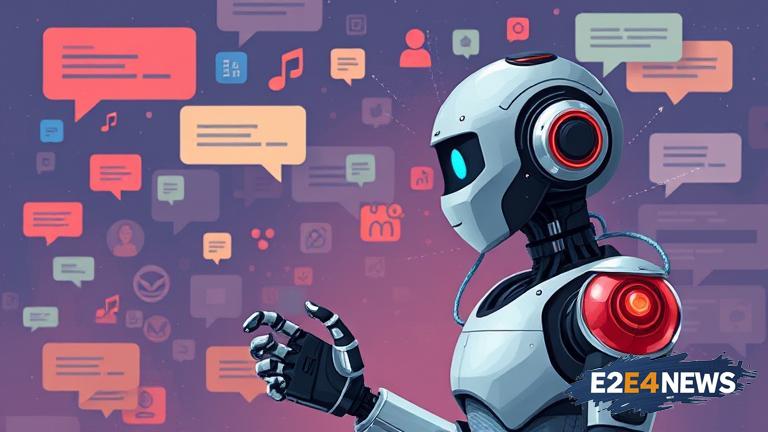The growing reliance of AI chatbots on biased sources has become a pressing concern in the tech industry. As AI chatbots become more prevalent in our daily lives, it is essential to examine the sources they rely on to provide information. Recent studies have shown that many AI chatbots are using biased sources, which can lead to the dissemination of inaccurate and misleading information. This can have severe consequences, particularly in sensitive areas such as healthcare and finance. The problem arises when AI chatbots are trained on datasets that are biased or incomplete, resulting in a lack of diversity in the information they provide. Furthermore, the algorithms used to develop AI chatbots can also perpetuate existing biases, making it challenging to identify and correct them. Experts argue that the lack of transparency in AI chatbot development is a significant contributor to this issue. Many companies fail to disclose the sources used to train their AI chatbots, making it difficult to assess their accuracy and reliability. Additionally, the rapid development and deployment of AI chatbots have led to a lack of regulation and oversight, allowing biased sources to go unchecked. The consequences of this can be far-reaching, from spreading misinformation to perpetuating social inequalities. To address this issue, there is a growing need for greater transparency and accountability in AI chatbot development. This can be achieved through the implementation of stricter regulations and the development of more diverse and representative datasets. Moreover, companies must prioritize the identification and correction of biases in their AI chatbots, ensuring that they provide accurate and unbiased information. The use of fact-checking mechanisms and human oversight can also help to mitigate the risks associated with biased sources. Ultimately, the development of AI chatbots that rely on biased sources poses a significant threat to the integrity of information and must be addressed through a combination of technological innovation and regulatory oversight. As the use of AI chatbots continues to grow, it is essential to prioritize their development and deployment in a responsible and transparent manner. The future of AI chatbots depends on their ability to provide accurate and unbiased information, and it is up to developers, regulators, and users to ensure that this is achieved. In conclusion, the reliance of AI chatbots on biased sources is a pressing concern that requires immediate attention and action. By prioritizing transparency, accountability, and diversity in AI chatbot development, we can ensure that these technologies provide accurate and unbiased information, ultimately benefiting society as a whole.
